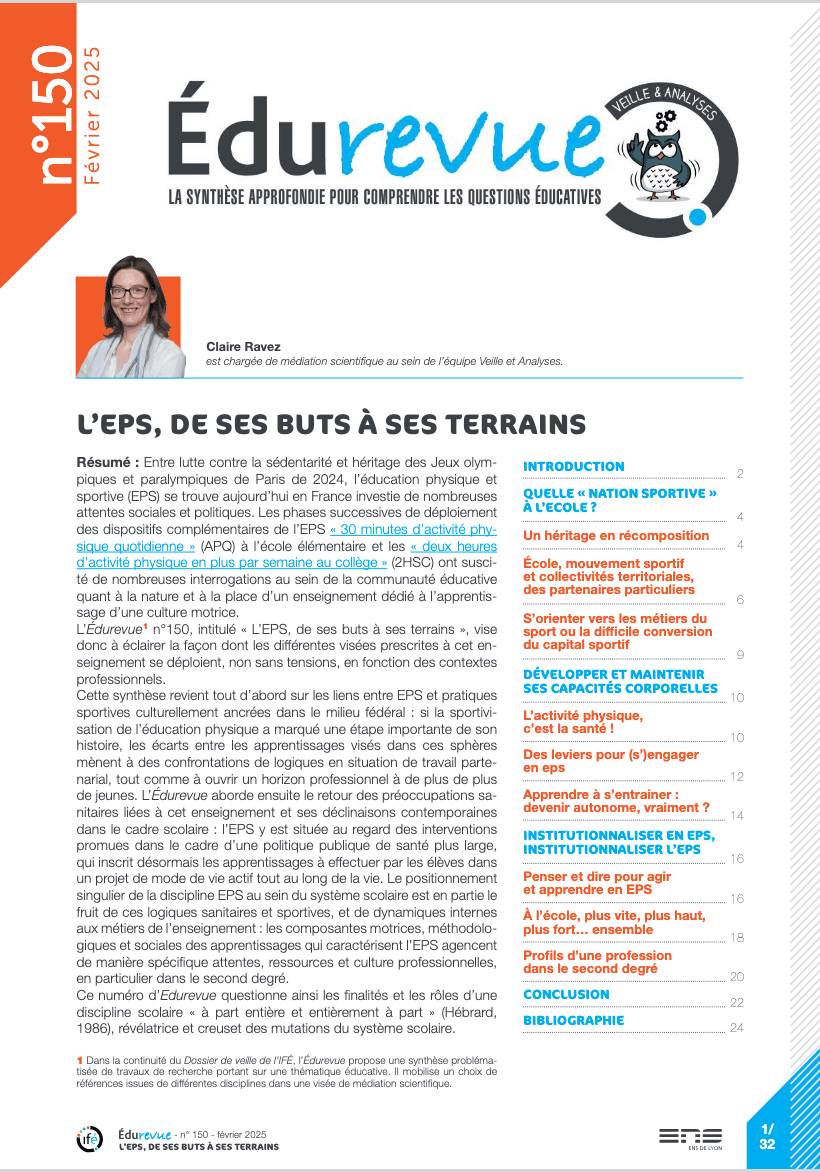Le lien entre l'altérité et le sens de l'implication professionnelle chez les travailleurs sociaux en formation. Du théâtre-forum au théâtre-impliqué : "Vivre" l'altérité pour s'impliquer
Auteur(s) : CAVARD Caroline-Marie
Date de soutenance : 2023
Thèse délivrée par : Université de Toulouse
Section(s) CNU : section 70 : Sciences de l'éducation
Sous la direction de : Dominique BROUSSAL & Michel LAC
Jury de thèse : Sabrina Labbé ; Gilles Monceau ; Maude Hatano-Chalvidan ; Véronique Bedin ; Richard Wittorski ; Charlène Charles
"Cette thèse porte sur la professionnalisation des acteurs du travail social du point de vue de la formation initiale et continue. Dans ce contexte, nous nous intéressons particulièrement à la façon dont l’altérité influe sur la manière dont les acteurs du secteur s’impliquent professionnellement. Les origines de ce questionnement s’ancrent dans un partenariat de recherche avec des acteurs de la formation. Ils s’interrogent sur les améliorations qu’ils pourraient mettre en œuvre dans les dispositifs de formation actuels qu’ils proposent à leurs publics. La question de la formation des travailleurs sociaux amène à interroger les problématiques que peut rencontrer le secteur, générées notamment par les transformations des modalités d’accompagnement des publics et les besoins et attentes des formés et des employeurs. Ces différentes transformations peuvent alors (re) mettre en question des dynamiques de sens pour les acteurs du travail social, érigé comme le fil rouge de cette recherche. Interroger le sens amène alors à considérer l’altérité comme facteur déterminant du sens. Dans l’objectif d’aborder ce questionnement, nous mobilisons le modèle de l’implication professionnelle de Mias (1998) : Sens/Repères/Sentiment de contrôle et les formes d’altérité intérieure, extérieure et épistémologique développées par Briançon (2019). Afin de réaliser notre étude, nous avons organisé cette thèse en deux parties. La première partie de la thèse est dédiée à la dimension heuristique de la recherche. La deuxième partie s’attache à mettre à l’épreuve les résultats produits, par la mise en œuvre d’une démarche praxéologique en mobilisant la méthode du théâtre-forum. En termes de recueils de données, nous avons réalisé des questionnaires destinés à des directeurs et directrices d’établissement et à des professionnels exerçant dans les secteurs sociaux, médico-sociaux et sanitaires. Aussi, dans le cadre de focus groups, nous avons interrogé différents acteurs : des étudiants éducateurs spécialisés, moniteurs éducateurs et accompagnants éducatifs et sociaux, des professionnels intérimaires et des formateurs. Cette recherche met en évidence que le sens de l’implication professionnelle pour ces trois types d’acteurs (étudiants, professionnels intérimaires et formateurs) est caractérisé en fonction des formes d’altérité extérieure, intérieure et épistémologique. Cette caractérisation offre l’opportunité d’identifier alors la nature actuelle de l’implication professionnelle de ces acteurs. Aussi, la perspective praxéologique de cette thèse met en avant que la méthode du théâtre-forum, mobilisée dans le contexte d’un dispositif de formation, peut être considérée comme une opportunité de mise au travail des questions d’altérité et d’implication professionnelle chez les étudiants en travail social."
The link between otherness and the sense of professional involvement among social workers in training. From forum theater to involved theater : “Experiencing” otherness to get involved
"This thesis focuses on the professionalization of social work actors from the point of view of initial and continuing training. In this context, we are particularly interested in how otherness influences the way in which actors in the sector get involved professionally. The origins of this questioning are anchored in a research partnership with training stakeholders. They wonder about the improvements that they could implement in the current training systems that they offer to their audiences. The question of the training of social workers leads us to question the problems that the sector may encounter, generated in particular by transformations in the methods of supporting the public and the needs and expectations of trainees and employers. These different transformations can then (re) call into question the dynamics of meaning for the actors of social work, established as the common thread of this research. Questioning meaning then leads to considering otherness as a determining factor of meaning. With the aim of addressing this questioning, we mobilize Mias (1998) model of professional involvement: Sense/References/Feeling of control and the forms of interior, exterior and epistemological otherness developed by Briançon (2019). In order to carry out our study, we have organized this thesis into two parts. The first part of the thesis is dedicated to the heuristic dimension of research. The second part focuses on testing the results produced by implementing a praxeological approach using the forum theater method. In terms of data collection, we carried out questionnaires intended for establishment directors and professionals working in the social, medico-social and health sectors. Also, within the framework of focus groups, we interviewed different actors: specialized student educators, educator monitors and educational and social supports, temporary professionals and trainers. This research highlights that the meaning of professional involvement for these three types of actors (students, temporary professionals and trainers) is characterized according to forms of external, internal and epistemological otherness. This characterization offers the opportunity to identify the current nature of the professional involvement of these actors. Also, the praxeological perspective of this thesis highlights that the forum theater method, mobilized in the context of a training system, can be considered as an opportunity to put questions of otherness and professional involvement to work. among social work students."
URL : https://theses.hal.science/tel-04450036v1/document
mot(s) clé(s) : enseignement et formation professionnels, travail collectif intermétier












